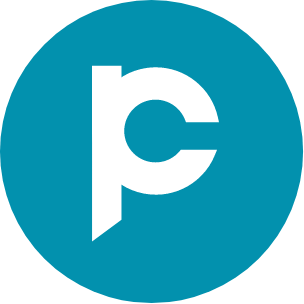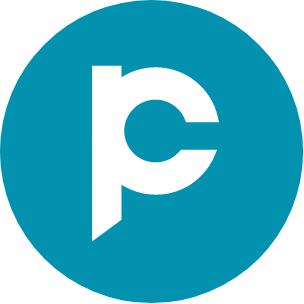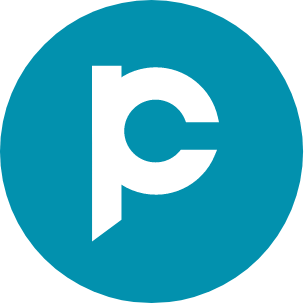How to plan WhatsApp Campaigns for seasonal sales success
Plan smarter WhatsApp campaigns with CRM integration. Learn how to segment audiences, automate workflows, personalise messages, and measure real-time results. Discover how early planning and AI-powered automation can turn seasonal sales opportunities into lasting customer relationships.
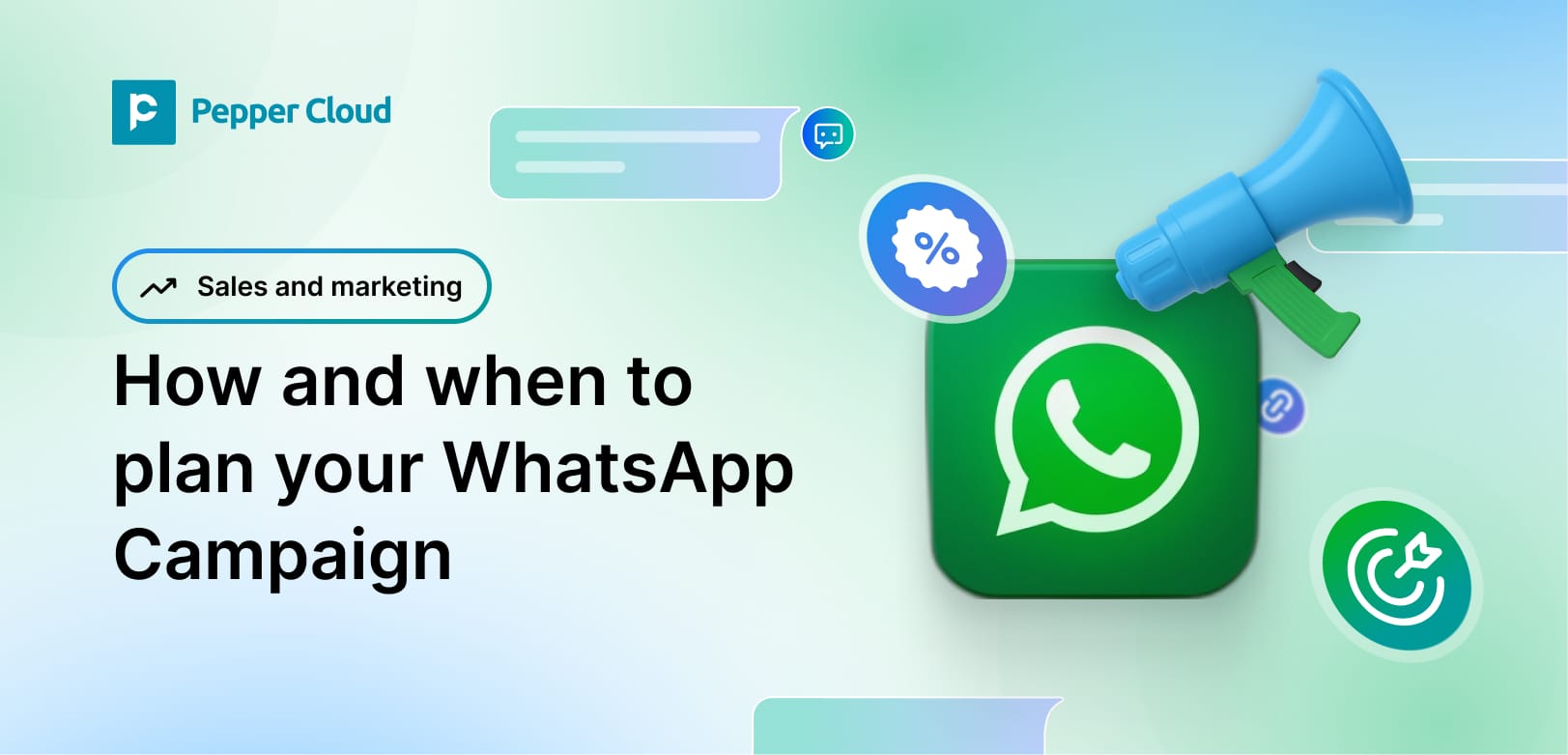
Have you noticed how some brands effortlessly stand out during peak shopping seasons while others fade into the noise?
Whether it is Black Friday in the U.S., Diwali in India, Singles’ Day in China or Christmas shopping in Europe, these peak shopping moments are not just about discounts. They are about timing, preparation and flawless execution.
And if you are a brand looking to maximise sales and loyalty, planning your WhatsApp campaign with CRM can make or break your results.
In fact, a Meta-commissioned YouGov study surveying 18,727 shoppers across 15 countries revealed something shocking. The results? 13% of consumers started their holiday shopping before November even began.
Today’s shoppers prepare earlier than ever, and if your CRM strategy and campaign calendar are not aligned, you risk losing out before the season even begins.
With over 2.78 billion monthly active users worldwide, WhatsApp has become the most direct and personal business communication channel. If used strategically, it can turn data into discovery, consideration and purchase.
The question is not whether to use WhatsApp, but when and how to plan your campaign. Let's break this down into a practical, actionable and inspiring roadmap.
Why planning ahead matters for WhatsApp campaigns
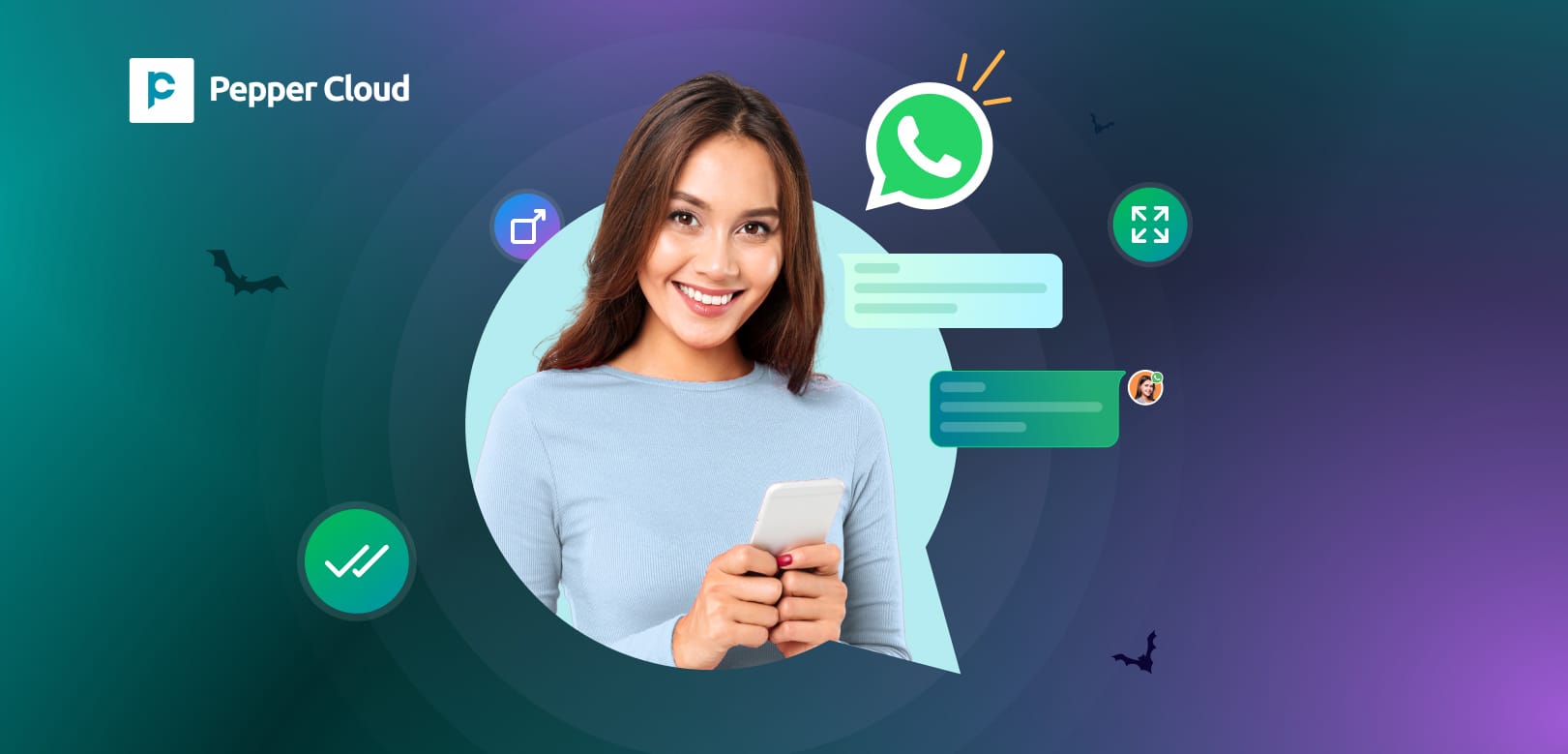
With the festive season approaching, your team decides to launch a WhatsApp campaign. A message is drafted, the audience list uploaded, and the campaign goes live. Yet the results fall short, and engagement is only a fraction of what you anticipated.
Why? Because your competitors already reached those same customers in October with teaser campaigns, pre-sale alerts, and exclusive offers. By the time you arrived, the customer’s shopping budget was already allocated.
This highlights a fundamental truth: WhatsApp marketing is not an afterthought—it is a strategy that demands preparation.
Let’s look at three reasons why timing and planning matter:
Consumer behaviour has shifted
Customers no longer wait until the exact date of sales to buy. According to Meta’s research, shoppers spread their purchases across weeks, sometimes months, leading up to high-value events.
WhatsApp campaigns require compliance and setup
Unlike emails, WhatsApp Business campaigns require template approvals, opt-in confirmations and message formatting compliance. Waiting until the last minute risks delays and rejections.
Competitive advantage comes with early engagement
Brands that seed awareness earlier can nurture relationships. A customer who receives valuable reminders or personalised content early is more likely to choose your brand when the sale day arrives.
Why WhatsApp should be at the core of your seasonal campaigns
Before understanding important timelines, let’s step back. Why should businesses prioritise WhatsApp in their seasonal campaigns?
1. Unmatched reach and penetration
In countries like the Philippines, Singapore, Thailand, and Vietnam, WhatsApp penetration exceeds 80% of internet users. Even in Western markets, WhatsApp is steadily growing. For seasonal campaigns, this translates into direct access to millions of shoppers at scale.
2. Higher engagement vs. email or SMS
While average email open rates hover at 20-25%, WhatsApp messages see an open rate of over 98%. Not only that, responses are quicker, with reply rates often above 40%.
Example: Imagine sending a Black Friday promo via email and WhatsApp simultaneously. Chances are, your email sits unopened, while your WhatsApp message gets clicked in under 5 minutes.
3. Personalisation at scale
Through WhatsApp Business API, brands can send tailored offers, product recommendations, abandoned cart reminders and loyalty rewards, all customised to user behaviour.
4. A full-funnel tool
WhatsApp is not just for blasting offers. It covers the entire customer lifecycle—from discovery to purchase to re-engagement. Meta even frames this as an “infinity loop” model:
- Awareness → Consideration → Purchase → Re-engagement → Loyalty
This makes WhatsApp unique among AI powered business communication tools.
6 Proven steps to plan and execute a high-impact WhatsApp campaign
When CRM data powers your WhatsApp campaigns, you move from guesswork to predictability. Instead of hoping customers respond, you can anticipate behaviours, trigger timely interactions, and measure results in real time. In short, WhatsApp becomes a CRM-powered growth engine.

Here is a structured framework with six proven steps to plan and execute WhatsApp campaigns that deliver measurable ROI.
Step 1: Define the goal of your WhatsApp campaign
Every campaign must begin with a measurable, CRM-aligned objective. Without clarity, execution becomes scattershot.
Campaign goal framework:
- Awareness (top of funnel): Target customers in your CRM who have engaged (e.g., site visits, catalog views) but have not yet purchased.
- Conversion (middle of funnel): Drive sales through urgency-led campaigns. Use CRM segments such as high cart abandonment rates or dormant wishlists.
- Retention & loyalty (bottom of funnel): Reactivate past buyers flagged by CRM with low Recency scores in RFM analysis.
Align campaign goals with SMART criteria: Specific + Measurable + Achievable + Relevant + Time-bound.
WhatsApp CRM ensures these goals are not only abstract but are tied directly to customer profiles and data points.
Step 2: Segment your audience early
Segmentation is where WhatsApp outshines traditional channels. Because it’s personal, relevance is non-negotiable. Your CRM provides the intelligence to create micro-segments that ensure precision targeting.
CRM-driven segmentation models:
- Purchase history segmentation: Past transactions (e.g., customers who bought smartphones in the last 24 months but not in the last 6 months).
- RFM segmentation: Using Recency, Frequency and Monetary value scores, identify your VIPs vs. lapsed customers.
- Geographic & event segmentation: Trigger messages around local events and cultural holidays (e.g., Diwali vs. Black Friday).
- Behavioural segmentation: Track product page visits, cart abandonment, or search keywords in CRM to trigger WhatsApp reminders.
Step 3: Plan the timeline – when to start
The success of a WhatsApp campaign often depends on starting early. Shoppers are preparing weeks before official sales dates, as shown in a Meta-commissioned YouGov study (Dec 2024), where 13% of consumers started shopping before November.
A structured timeline helps you stay ahead:
- 4–6 weeks before the event: Use CRM to identify last year’s seasonal buyers and send teaser campaigns.
- 2–3 weeks before the event: Share personalised catalogs or product wishlists linked to CRM browsing history.
- Sale days: Push urgency-driven offers to loyal customers and frequent buyers.
- Post-event: Re-engage event buyers with loyalty rewards or cross-sell offers, triggered by CRM purchase records.
This phased approach ensures your campaigns stay top-of-mind from anticipation to retention.
Step 4: Craft high-impact WhatsApp messages
Personalisation on WhatsApp should feel natural and data-driven. Instead of just using a name, messages should reflect what customers actually like about the products they browsed, items they purchased or their loyalty status.
What's more interesting? McKinsey notes that 71% of consumers expect this level of personalisation, and they quickly lose interest when it’s missing.
By connecting WhatsApp with CRM product catalogs, brands can send images, videos, or carousels that match individual preferences.
In fact, urgency works best when it's real. CRM stock alerts can trigger prompts such as “Only 3 left in your size”, which feel more authentic and persuasive than generic countdowns.
Step 5: Integrate WhatsApp with your CRM and marketing stack
WhatsApp campaigns should not operate in isolation. The true impact comes when WhatsApp is deeply integrated with your CRM and other channels.
- WhatsApp Broadcasts
Run WhatsApp campaigns directly from your CRM. Broadcast product updates, offers, or reminders to targeted customer groups using pre-approved templates and track delivery from a unified dashboard.
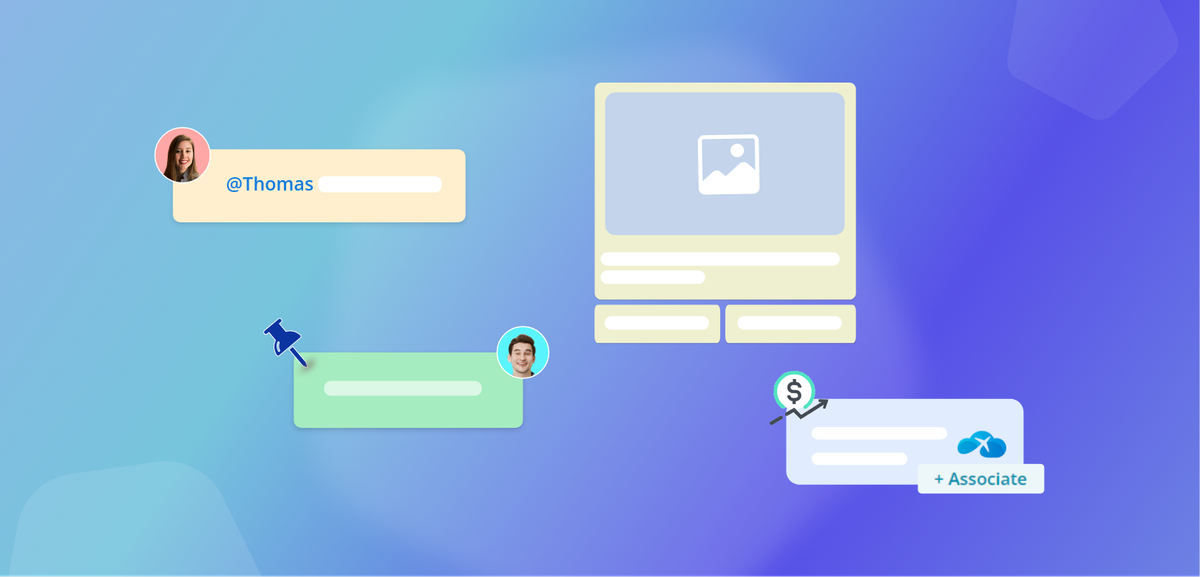
- Automated Workflows
Automate key interactions through WhatsApp workflows. Trigger responses when a lead is added, a deal moves stage, or a ticket is created. Schedule follow-ups, reminders, or updates without manual input.
- Instant Follow-Ups
Enable teams to respond to new enquiries the moment they appear in the CRM. Real-time notifications help sales and support teams follow up instantly—reducing delays and improving engagement.
- Support Automation
Convert WhatsApp chats into CRM tickets automatically. Assign, prioritise, and escalate cases as needed while tracking resolution times. Multi-agent access allows multiple team members to handle chats using a single WhatsApp number.
- Sales Automation
Use WhatsApp to capture leads round the clock. Auto-assign them to sales reps, automate reminders, and manage pipeline activities from within the CRM. Forecast and monitor performance with visual dashboards.
- Analytics and Reporting
Monitor WhatsApp message performance, ticket response times, and lead conversion metrics in one place. Use CRM dashboards to identify gaps and optimise engagement strategies.
- AI Assistance
Use AI capabilities such as automatic message summaries, instant replies, and chatbot responses during non-working hours. These features help maintain responsiveness and improve customer satisfaction.
Step 6: Measure, analyse, and optimise
WhatsApp Business API provides strong reporting, but its true power emerges when combined with CRM analytics. You can see not just message engagement but also sales impact.
Key insights to track:
- Open and delivery rates: Test different templates and timings.
- Click-through rates (CTR): See which segments respond best.
- Conversions: Connect WhatsApp campaigns to CRM sales data for ROI tracking.
- Customer lifetime value: Measure whether campaigns increase repeat purchases and loyalty.
Each campaign becomes a learning cycle—insights from one event feed into the planning of the next, making every campaign sharper and more effective.
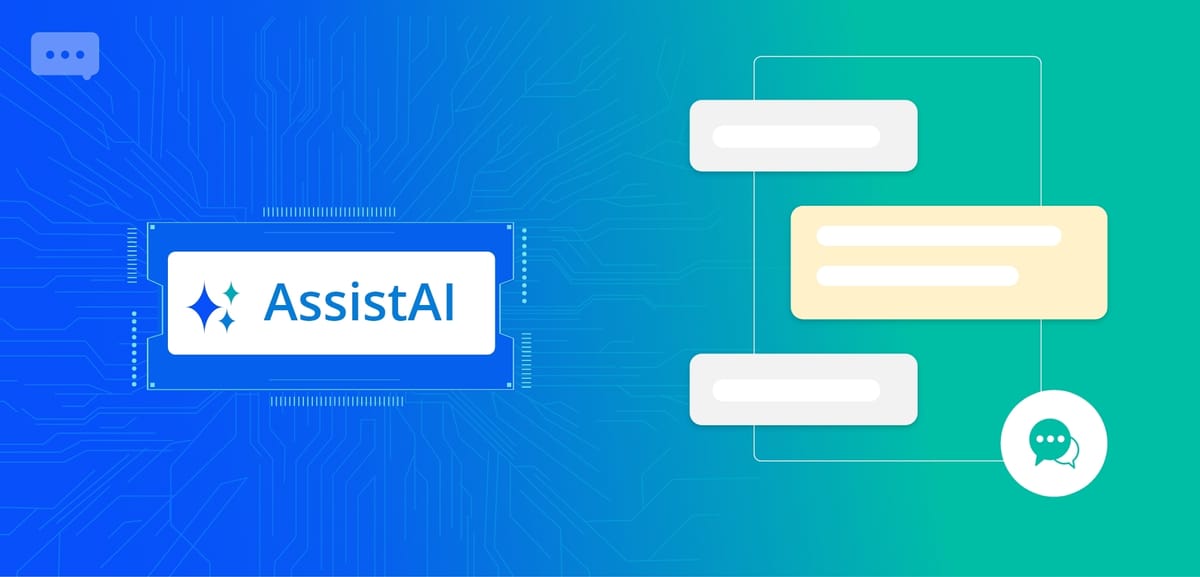
The future of WhatsApp Campaigns
Looking ahead, WhatsApp marketing will evolve beyond seasonal campaigns into always-on conversational commerce. With AI chatbots, product catalogs and payment integrations, WhatsApp will increasingly function as a mini storefront inside a chat window.
But the principle will remain the same: timing and planning drive success.
Brands that treat WhatsApp like a strategic channel, not just a messaging app will stay ahead. And those who plan campaigns months in advance, segment their audience, and leverage personalisation will consistently outperform.
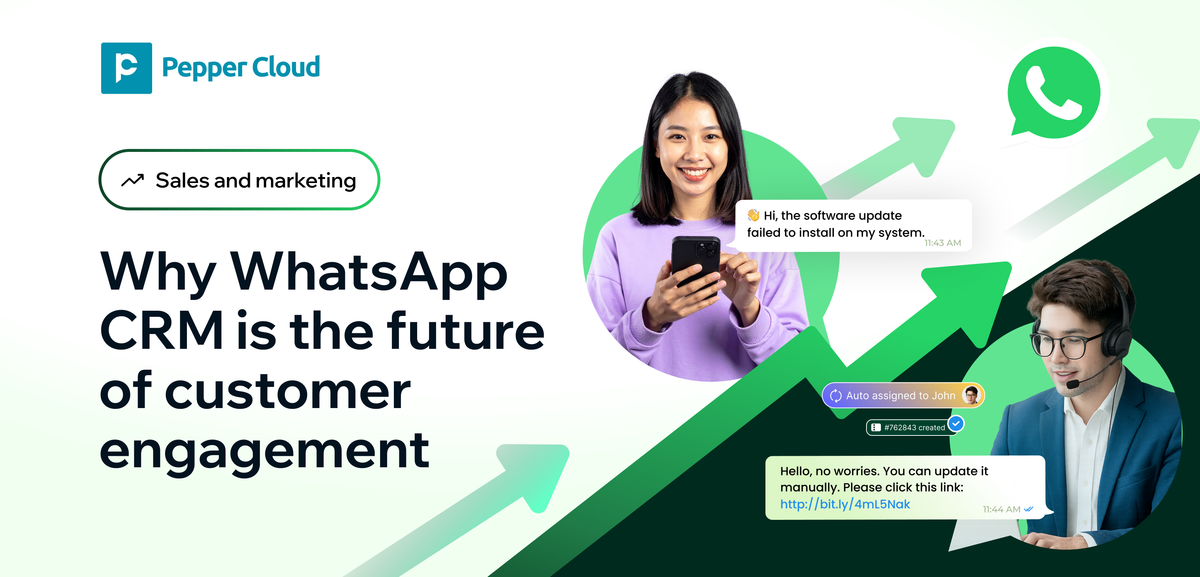
Final thoughts
Seasonal sales moments are won or lost in the planning stage. As consumer habits shift, such as shopping earlier, expecting personalised experiences, and using messaging apps as their go-to for communication, brands can no longer afford to treat WhatsApp as an afterthought.
Instead, WhatsApp must become a central pillar of your sales strategy, integrated across the funnel. The businesses that succeed won’t just blast discounts on sale day, and they will build conversational relationships weeks in advance and continue nurturing long after the sale.
As the study shows, the holiday rush starts earlier every year. The clock is ticking, but it is never too late to start.
Ready to Transform Your WhatsApp Engagement? Take the next step towards smarter sales and seamless customer support. Contact with our team to explore how Pepper Cloud’s WhatsApp CRM can help you automate workflows, personalise conversations, and accelerate growth.
From syncing customer data and automating personalised templates to tracking conversions in real time, Pepper Cloud ensures your WhatsApp campaigns are both powerful and measurable.
WhatsApp campaigns - Frequently asked questions
Q1. Why is personalisation important in WhatsApp campaigns? Personalisation makes WhatsApp campaigns feel relevant to the customer. Instead of generic promotions, messages reference real actions such as products browsed, purchases made or loyalty status. This improves engagement and builds trust.
Q2. How can CRM data improve WhatsApp messages? CRM data connects customer behaviour with messaging. It allows businesses to send targeted product recommendations, loyalty rewards, stock alerts or timed messages based on when customers are most active.
Q3. What type of media works best in WhatsApp campaigns? Rich media such as images, videos, and product carousels synced from CRM product catalogs tend to perform better than plain text, as they help customers visualise products and offers.
Q4. How can urgency be used effectively in WhatsApp messages? Urgency works best when it’s grounded in real data. For example, CRM stock alerts can trigger messages like “Only 3 left in your size,” which are more authentic and persuasive than generic countdowns.
Q5. When should WhatsApp messages be sent for maximum impact? CRM engagement history shows when customers are most active. Scheduling messages around those times improves visibility and increases the likelihood of clicks and conversions.
